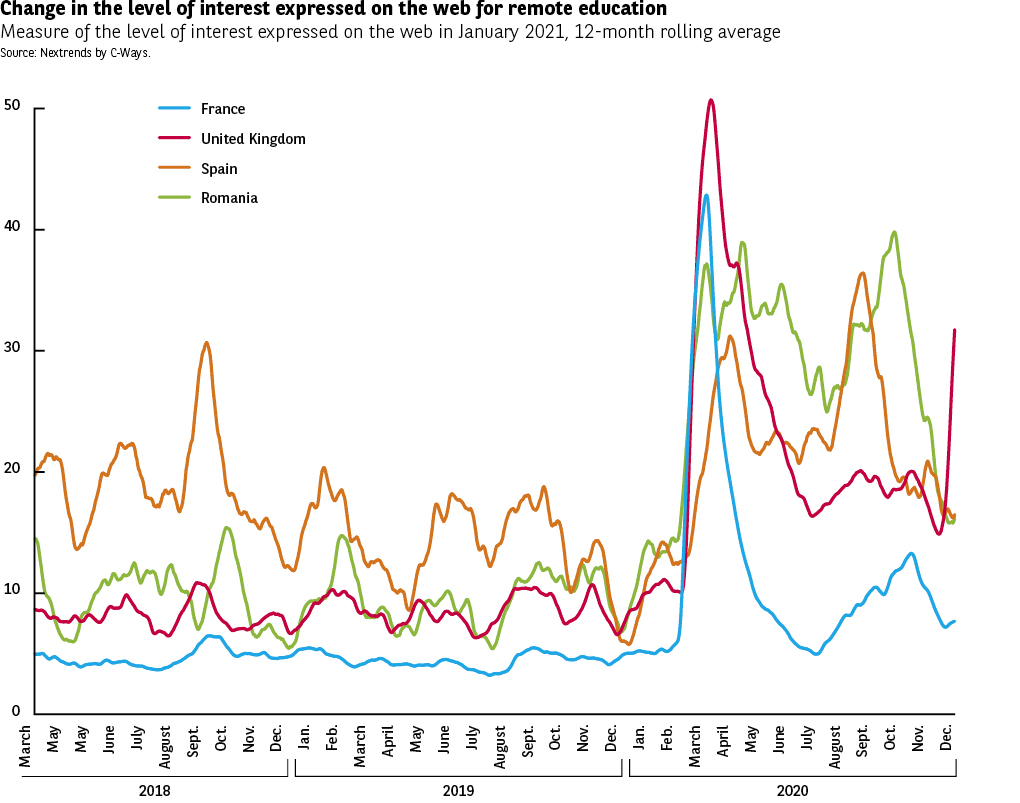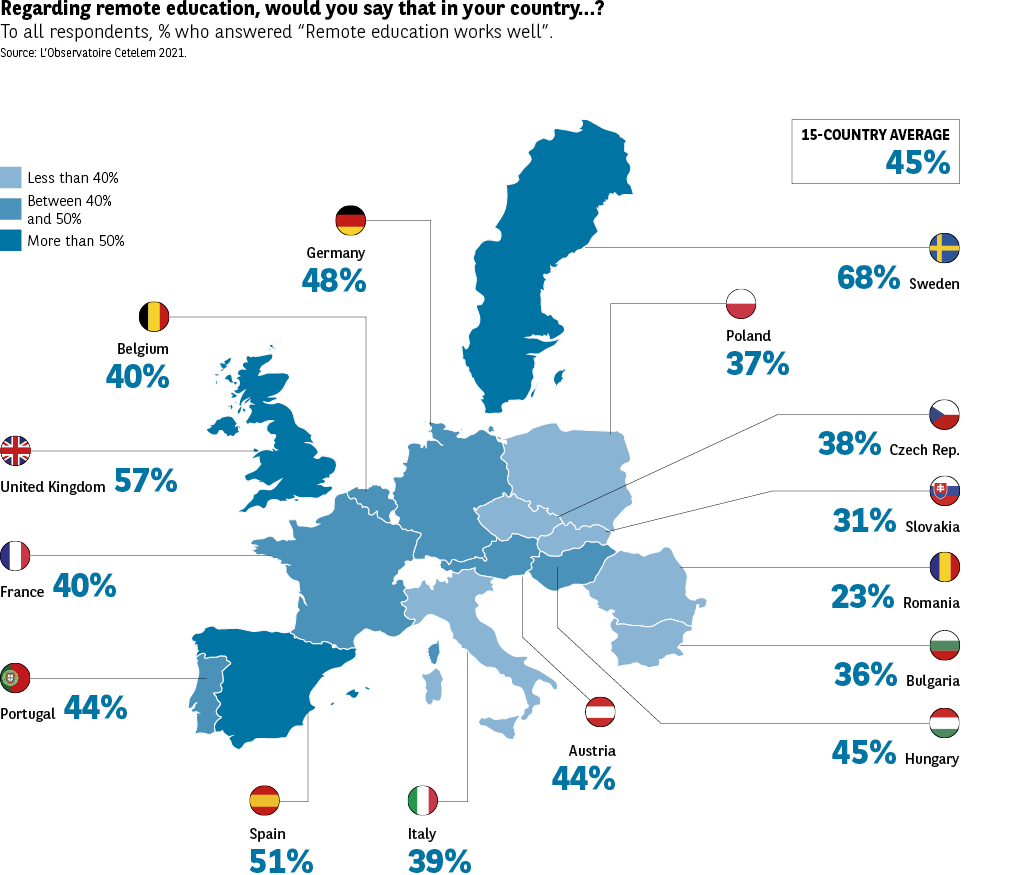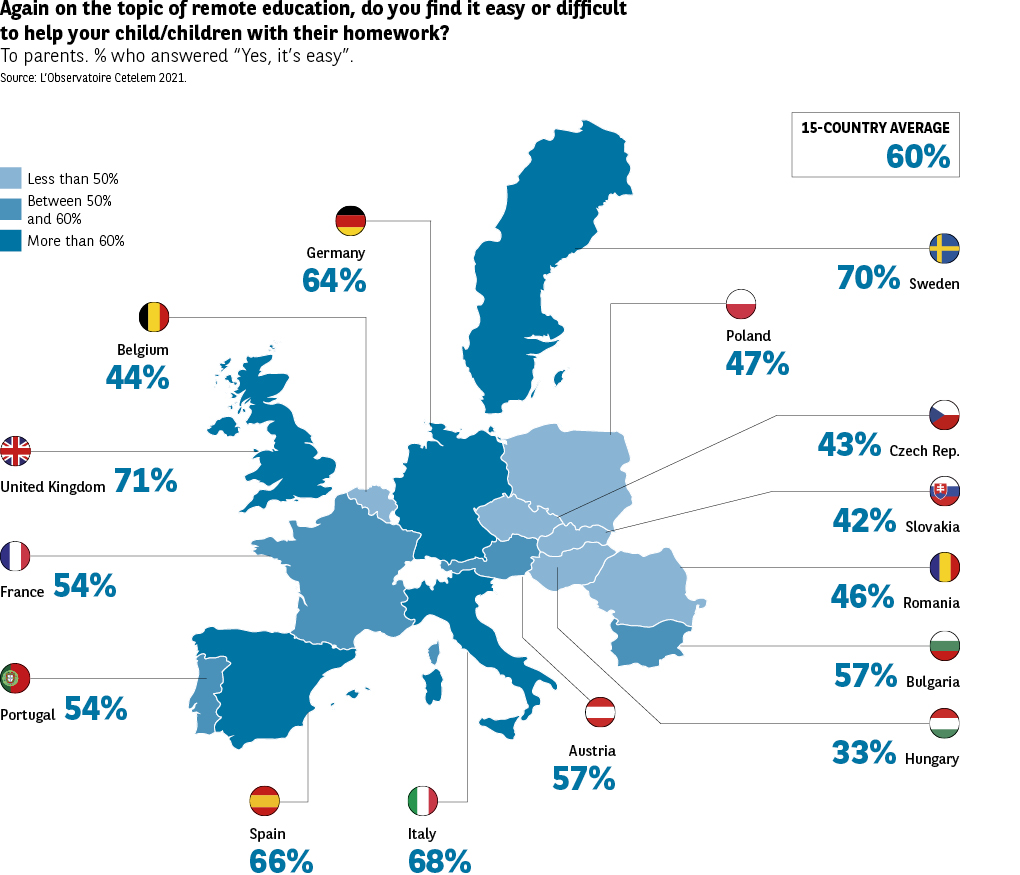Remote Education


A hot topic for the whole of society
There have been countless news reports and newspaper articles on the difficulty of providing a satisfactory learning environment in these Covid-19 times. The measures taken by many governments have caused great disruption to a system on which society and families depend, which up until now had been governed by a regular and reassuring calendar that alternates between school terms and holidays. With the health crisis, what was previously just a speculative topic of conversation in many countries, given that distance learning had hitherto been far from widespread, has become a major societal issue (Fig. 42).
The surge in online searches on the theme of e-learning in recent months is evidence of rapidly growing interest in the topic, albeit that this is to be expected when schools are closed. The Spanish have been more consistent with their searches, having already started enquiring about remote education before the health crisis began.
A lack of quality in the eyes of a slim majority
At a time when many parents have either had the opportunity to revise long-forgotten subjects online with their children, or effectively turned into teachers themselves, questions regarding the quality of contactless learning are clearly very pertinent. Just under half of Europeans think that remote education works well (45%) (Fig. 43). Respondents in Sweden, where this method of learning is widespread, are by far the most convinced of its effectiveness (68 %). The other countries in the Northern group are of a similar mind but follow some way behind, as does Spain. The opposite is true in Central Europe, with the Romanians emerging as the most critical of remote education (23%).
Fewer than 1 in 2 Europeans believe that remote education works well.
A good grade for parents as teachers
Remote learning has intensified the involvement of parents in their kids’ education. But have homeschooling parents scored well overall? A majority believe that they have. 6 out of 10 have found it easy to help their children with their homework (Fig. 44). The British, Swedes, Italians, Spanish and Germans make up the top five in terms of satisfaction. The Hungarians, Slovaks, Czechs, Belgians and Romanians are the five populations least likely to believe they are the people best qualified to be teaching their children (Fig. 45).
6 out of 10 parents have found it easy to help their children with their homework.




